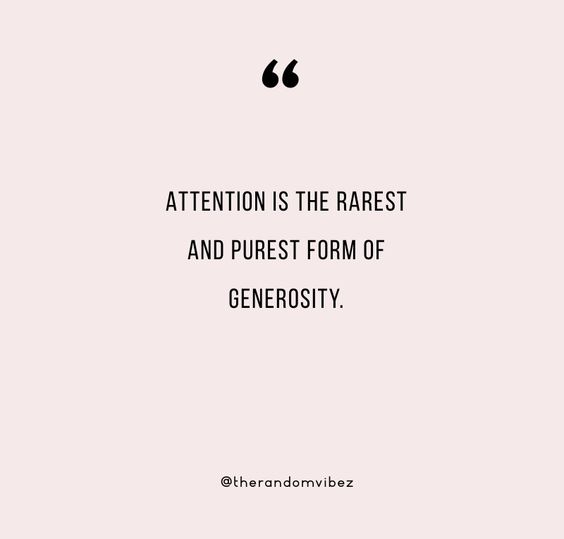Video really didn’t kill the radio star. Radio listenership remains relatively stable at 82% of Americans as of 2022 (Pew Research Center.) This surprised me since I haven’t listened to the radio in years, even SiriusXM which I unsubscribed to several years ago.
This was about the same time my husband and I realized on a road trip, that our musical tastes had vastly expanded and diverged from the 80’s, 90’s and early 2000’s. A time when our relatively similar tastes were limited to CDs and radio stations. We were astounded at what each other listened to on our playlists. Think about it, there is so much available to listen to now, decades of music in any imaginable genre that is instantly available at your fingertips – 100 million songs on Apple Music and Spotify.
We compromise now with combined playlists and shared podcasts. Incidentally, podcasts are catching on and have exponentially increased over the last decade. As of 2023, 42% of Americans have listened to a podcast in the past month (Edison Research.) There are 4.2 million total podcasts registered around the world with over 95.4 million episodes published in Apple Podcasts. (June 2024 – thepodcasthost.com)
If you aren’t streaming podcasts, you’re streaming one of the over 800,000 TV shows that I do when I’m steaming laundry. No hated, mindless task gets done without distraction. And I haven’t even mentioned movies, sports, social media, articles, blogs…
How do you even begin to search through all of that? You don’t. The invincible algorithm will continuously slap whatever it curates in front of your face or in your ears if you aren’t decisively intentional about what and who you give your attention to. Each platform (website) has its own ranking system of user preferences that creates the algorithm. Some are better than others.
There is another economy and currency that you need to educate yourself on to learn how to prioritize and manage in concert with the traditional one.
Your attention.
Entertainment, things and information are no longer scarce, your attention and time are, the most valuable resources you have. Paying Attention: The Attention Economy – Berkeley Economic Review Even in the 1990’s, Michael Goldhaber described this new economy as a type of wealth, “Obtaining attention is a kind of enduring wealth, a form of wealth that puts you in a preferred position to get anything this new economy offers.” View of The attention economy and the Net | First Monday
Just as investing is intangible so is your attention. “Money flows to attention.” There is endless competition for your attention and money. There are so many distractions and shiny objects vying for your ears, eyeballs and dollars. It’s not enough to manage your time and money. You must be cognizant of where your attention is first. Think about and conceptualize your attention this way.

Now, who and what do you give your attention away to each day? How generous are you to attention-seeking people and companies who capitalize on your attentiveness all for the sake of themselves or money? Or are you generous with your attention to those you cherish and what you value in life? There are limited hours (time) in the day outside of work and other responsibilities where your attention is open for exchange. Choose wisely.
As much as people claim they have it all, that’s not possible now if it ever was. With the infinite choices we face each day, your attention and time become focused and prioritized consciously or not. What you don’t realize is that you will always miss something despite how carefully you focus, choose and curate your life. The sacrifices, investment (sunk) costs, opportunity costs, surprises, failures, disappointments and regrets are not always obvious, but they are inevitably present. No, You Can’t Have It All and You Have It All. Now What? | Psychology Today
Life is a series of choices and trade-offs. None of them being equal. Where and who you give your attention will determine your trajectory in life. If you continually choose to give your attention away to short-sighted things, distractions and the short-term tactical, you will never get to the level of focus required to identify your long-term, overall aims, interests, values and the means to achieve and keep them – being strategic. You have to understand and get comfortable dealing with intangible, unknown, hard-to-grasp concepts that some just can’t do and most can’t do alone.
In late 2017, I made two life-altering decisions in a matter of months. I left my financial Controller position at a Fortune 300 company to go work at a small, local, family-owned company where a former Area President of the district I worked in was heading a new segment. I had no actual proof but from intuition and prior experience I sensed my position was going to be downgraded due to automation and consolidation. And it was. However, going to the smaller company wasn’t the answer. Although it paid more and was closer to my house, it became an attention-seeking competition that I wasn’t ever going to win or value.
With the same inkling I had to get a job to go to college, I knew I actually could make us more money if I didn’t work as counterintuitive as that sounds. Neither my husband and I were paying close enough attention to our financial situation and I could see the missed opportunities. Money follows attention. Someone needs to do the work. I made that promise to him the last night I came home nearing 9 pm. A promise and sacrifice that wasn’t originally without regret.
It takes time to understand the intangible.
Other jobs couldn’t offer me more time even with less pay. I needed time and focused attention to figure out how to capture those opportunities and I did. But how do you explain giving up a high-paying job for something so elusive? Now I tell people I write on my website.
We all got distracted in 2020, but my distraction grew in 2021 with the change of environment I wanted so much in 2017. My attention became focused on buying and selling houses 2,000 miles apart, logistics, unpacking and dealing with damaged furniture my piano included. I completely forgot to monitor the stock price of expiring options. We should’ve sold them the year we moved but we didn’t. I also should’ve paid far more attention to taxes. You will always miss something.
I do seek help with taxes but should’ve questioned more. I also get second opinions and ideas from other professionals to make sure my thinking, assumptions and calculations are on point to the extent that they can be. Life will always be uncertain, and you can’t navigate it alone.
Instead of having it all, what about finding satisfaction in having enough? The value you receive rises and falls with the decisions and trade-offs you make. You fail, are disappointed or regret something in the short-term but given enough time, that disappointment or regret will fade with the wisdom you gain and the freedom you enjoy in your long-term pursuit of getting enough of what you value.
Your attention will determine how your time and money are spent. You can’t grow time, but you can grow money to buy time with costs, whether you chose them or not. If you always focus on the short-term, that’s what you will receive, short-term gains offset by short-term losses. You break even and it will never feel like enough (paycheck to paycheck.) You’ll always be wanting more because it isn’t satiable. Focusing on the long-term strategic along with the short-term tactical will eventually put you ahead and that will be far more satisfying.

